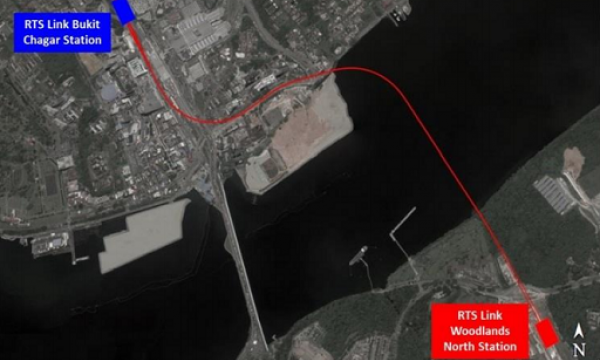
Daily Briefing: Singapore and Malaysia suspend intercity rail project; Banks race against BigTechs to lure top cloud talent
And a smoking cabin that turns cigarette smoke into clean air was launched outside Fusionopolis.
From Reuters:
Singapore has agreed to suspend the construction of the Johor Bahru-Singapore Rapid Transit System (RTS) Link at Malaysia’s request.
The ministers announced at a joint press conference in Singapore that the delay will be until September 30 and that Malaysia will pay Singapore compensation for abortive costs.
“If by 30 September 2019, Malaysia does not proceed with the RTS Link Project, Malaysia will also bear the agreed costs incurred by Singapore,” Khaw Boon Wan and Anthony Loke said in a joint statement.
The suspension marks a delay in yet another project since a new Malaysian government came into power last year pledging to tighten finances and review major deals.
Read more here.
From eFinancial Careers:
Banks in Singapore have lost several senior cloud professionals to Google of late, with DBS’s former APAC head of cloud engineering, Carl Bachman Kharazmi, now working for Google. The tech firm has also hired Guillaume Van de Vyver from Standard Chartered in an APAC cloud strategy role, and taken on Keshi Tan from JP Morgan as a strategic cloud engineer.
JP Morgan and Citi, two of the foreign banks with the largest tech teams in Singapore, have 44 and 10 Singapore-based vacancies requiring cloud skills on their respective careers sites.
This demand has helped to push up pay as cloud engineers at the director level in Singapore are the (equal) best compensated technologists working in banking, and earn $250k on average, according to our 2019 technology pay table.
“There’s now a two-way battle between banks and tech firms in Singapore for top cloud talent – they’re both happy to hire from each other,” says Adam Davies, lead IT recruiter at iKas International.
Read more here.
From Channel NewsAsia:
A smoking cabin that is fitted with a three-layer filtration system developed in Denmark, turning cigarette smoke into clean air was launched by Southern Globe Corporation (SGC) outside Fusionopolis in one-north.
The air-conditioned cabin can hold up to 10 smokers.
First, cigarette smoke is passed through a pre-filter which removes large dust particles. A HEPA filter then removes small harmful particles the size of 0.3 microns, before an "activated carbon filter" removes tobacco smells and chemicals.
SGC added that it plans to roll out 60 smoking cabins around Singapore by the end of the year.
Read more here.
























 Advertise
Advertise






